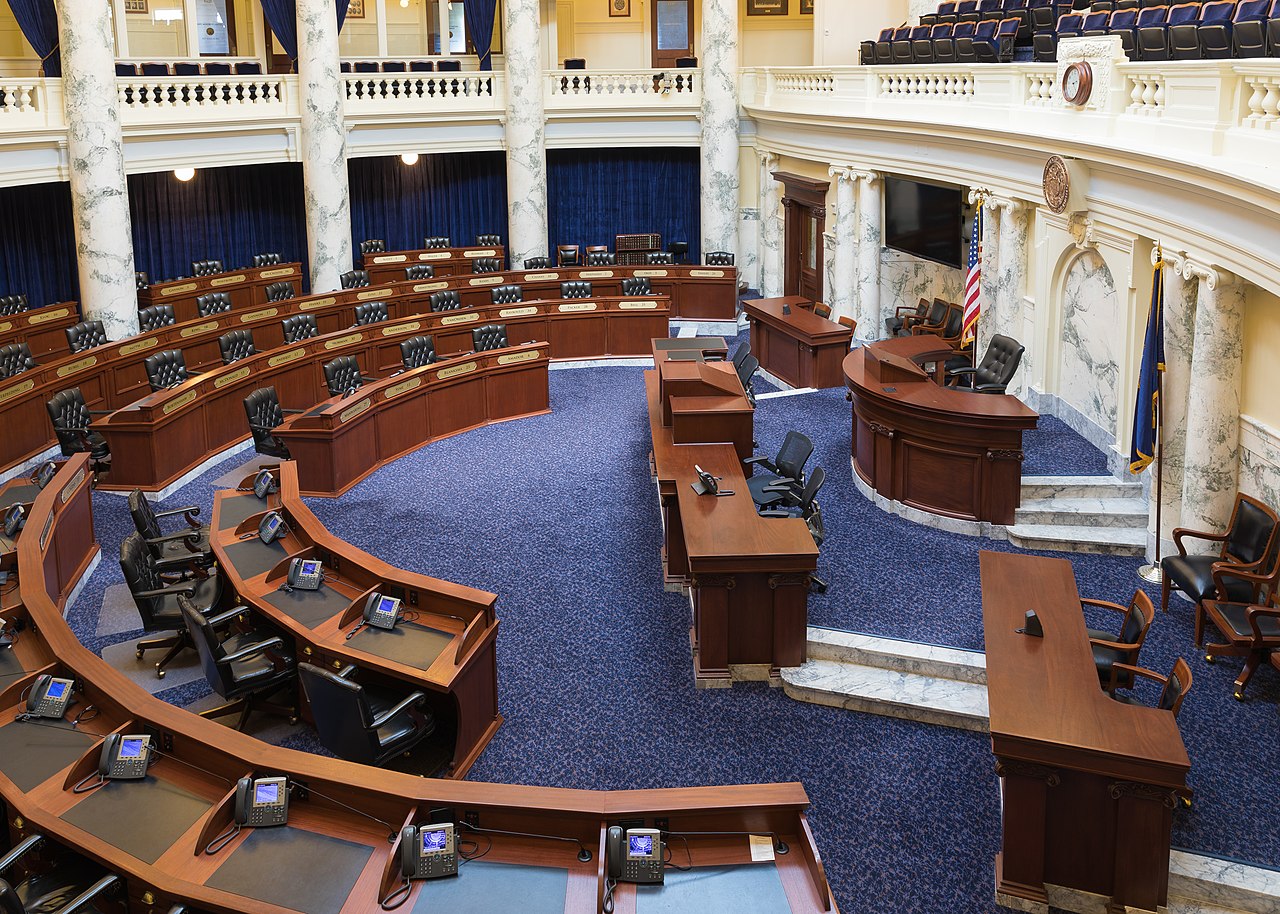FOR IMMEDIATE RELEASE: April 5, 2023
Washington, D.C. – Legislation to prohibit Ranked-Choice Voting in Idaho has been signed by Governor Brad Little.
House Bill 179, which was introduced in February and passed by the legislature on March 21st, stipulates that “no county elections office shall use ranked choice voting or instant runoff voting to conduct an election or nomination of any candidate in this state for any local government, statewide, or federal elective office.”
Ranked-Choice Voting—also known as “Rigged-Choice Voting”—has been an unmitigated disaster when implemented in public elections, makes voting more difficult, reduces transparency, and puts voter confidence at risk.
Visit StopRCV.com to learn more, and click here for our fact sheet.
National Chairman of the Election Transparency Initiative and former Virginia Attorney General Ken Cuccinelli issued the following statement:
“Make no mistake, Ranked-Choice Voting is a scheme designed by Democrats and liberal Republicans to confuse voters, protect failed lawmakers who have long lost the confidence of their constituents, and to ultimately rig elections in their favor. Under a Ranked-Choice Voting Scheme, liberal politicians get elected to office and conservative candidates are defeated.
“We applaud the legislature and Governor Little for enacting this critical legislation that safeguards the right to vote in free and fair elections voters can trust. Now more than ever we need to protect the integrity of our elections and the confidence of voters, but proposals in favor of disastrous Ranked-Choice Voting systems would do precisely the opposite. They must always be rejected, and we were other states to follow suit.”
Background:
RCV has been an unmitigated disaster when implemented in public elections. POLITICO reported that RCV led to chaos and confusion among voters in New York City’s 2021 election, which went two weeks without a winner. “The darling of the wealthy, liberal elite, ranked-choice voting was used for the first time in New York’s primary and now it’s an unmitigated disaster, with mistakes plaguing the count and voters still in the dark about which candidate won, a week after the contest,” one Boston Herald columnist wrote.
Nearly two months after the November 2022 election, Alameda County in California announced that it systematically counted the ballots incorrectly.
“Oops. The error didn’t affect the outcome in most races, but it flipped a seat on the Oakland School Board, and now the question is what to do about the certified winner who actually lost and the third-place finisher who won,” the Wall Street Journal Editorial Board wrote. “Blame the mess on official incompetence, but reserve some ire for ranked-choice voting (RCV), a system that makes it complicated even to explain the mistake.”
RCV fails to deliver on its promises. Officials in Utah have reported numerous concerns with the state’s nascent pilot program, with several jurisdictions reporting that promised cost savings have not materialized, voter engagement has fallen, and even engaged citizens have struggled to adapt to RCV. In fact, voters are being disenfranchised because many ballots are not being counted due to errors made in the ranking process. In the Genola City Council Race 1 in 2021, 58% of ballots were either discarded out of hand or otherwise spoiled, while City Council Race 2 had a discarded or spoiled rate of over 74%.
RCV puts elections and voter confidence at risk. An Oakland, California school board race that used RCV recently certified the wrong winner. Hundreds of voters failed to list a first-choice candidate and officials failed to tabulate those ballots properly under the law. Worse still, the mistake was not caught by government officials—it took an audit by outside experts to find the problem. By then the wrong winner had been certified, forcing the true winner to file a lawsuit to be recognized.
RCV makes voting more difficult and may discourage people from voting at all. RCV raises the burden on voters, requiring them to know enough to rank multiple candidates in each race. Evidence suggests this added complexity discourages voting. For example, Alaska’s 2022 general election had an extraordinarily low turnout—particularly among low-income, low-propensity, and minority voters.
RCV reduces transparency and makes recounts more difficult. RCV turns tabulation into a black box, making it harder for voters to track the process, harder for officials to catch mistakes, and makes recounts in close races even more difficult.
RCV risks unnecessary election delays, particularly in close races. The added difficulty of tabulating RCV elections and recounting close races risks delaying election results.
RCV fails to deliver true majorities. When voters do not rank enough candidates, their ballots are thrown out. This is called ballot exhaustion. Often, so many ballots are thrown out that candidates only win a majority of the remaining votes, but not a majority of all votes cast.
The Election Transparency Initiative, a partnership between the American Principles Project (APP) and Susan B. Anthony (SBA) Pro-Life America was organized to combat federal H.R. 1 and H.R. 4 legislation and advocate for state-based election reforms that voters can trust.
###

